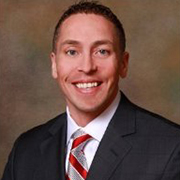 Debra Harrsch
|
How to Harness the Power of Social Media to Expand Your Clinical Laboratory or Pathology Practice, Win New Clients, and Increase Revenue
Order Live Webinar Recordings!
A presentation guaranteed to be win/win for every laboratory manager, both in fulfillment of your responsibilities at the lab, as well as your personal career development! Develop your lab’s strategy on how to successfully leverage social media to increase revenue by attending this upcoming webinar June 23!
|
|
|
Getting Paid for Lab Tests in Today’s Tough Managed Care Marketplace: Real-World Success Strategies to Increase Lab Revenue, Deliver More Value, and Achieve Higher Patient Satisfaction Scores
Order Live Webinar Recordings!
It’s an established fact that payers have become tougher on accepting claims and paying the full amount billed by labs. But in addition, tens of millions of Americans are now enrolled in high-deductible health plans and thus responsible for larger copays and annual deductibles. The result: Huge numbers of labs are losing big $$$ on send-outs, particularly genetic and molecular tests. The good news is that despite these tough financial times for the lab industry, bright spots can be found among those laboratories who have “cracked the code” by reevaluating their strategies and discovering how to effectively collect funds while staying patient- and payer-friendly. Develop your lab’s strategy on how to successfully collect funds from patients by attending this upcoming webinar May 26!
|
Boosting the Value of Lab Testing Services: Lessons from Effective Clinical Collaborations with Physicians and the Lab Team at Henry Ford Health
Order Live Webinar Recordings!In the new value-based paradigm, labs are rewarded for the quality of tests rather than the quantity of testing. Does your lab have the knowledge it needs to stay ahead of this critical financial trend? During this all-new webinar, you will have the opportunity to engage with two innovative lab leaders from Henry Ford Health System and learn what is working there, and why. Hear about the steps Henry Ford has taken to cut costs, while at the same time developing new lab testing services that deliver more value to their physicians, patients, and payers.
|
|
Improving the Utilization of Molecular and Genetic Tests: Strategies for Appropriate Test Selection, Achieving Error Reduction and Cost Savings, and Improving Patient Outcomes
Order Live Webinar Recordings!
Across the nation, hospital administrators are recognizing that effective lab test utilization is a critical factor in a lab’s success. With more than 60,000 genetic tests now available, finding and ordering the right test has become more challenging than ever before. During this 90-minute webinar, you’ll learn about innovative new utilization management programs designed to ensure the appropriate use of genetic and esoteric tests, more effectively control costs, decrease ordering errors, and improve the value of testing for both patients and providers.
|
|
Harnessing the Power of Real-Time Analytics:
|
|
Your Clinical Lab’s Opportunity to Capture $100-$500K in Wasted Spending: Proven Steps to Improve Inventory Management, Free Up Cash, and Increase Lab Performance
Order Live Webinar Recordings!
Master simple secrets to converting inventory to cash that your lab can spend immediately; eliminate stock-outs and expired reagents while increasing lab and staff productivity.
|
|
Boosting Your Pathology Lab’s Revenue in 2016:
|
|
Update on Government and Private Payer Audits: Prepare your Lab with the Newest Audit Tactics, as Payers Tighten the Audit Noose on Larger Numbers of Labs
Order Live Webinar Recordings!
Government and private health plans are taking tougher actions to ensure that clinical labs and pathology groups are complying with laws, regulations, and managed care contract terms. Learn what you can do to mitigate your audit risk, and how to effectively respond to an audit.
|
|
Moving from Volume-Based to Value-Based:
|
|
How Your Lab Can Deliver More Value from
|
|
How Your Lab Can Collect More from Patients and Add $100,000 to $1,000,000 More in Yearly Revenue
Order Live Webinar Recordings!Learn the actions your lab can take today with billing and collection efforts to harvest more money from patients, in today’s era of high-deductible health plans, HSAs, and cash-paying patients.
|
|
Responding to Tougher Payer Requirement for
|
|
Achieving The Inspection-Ready LabOrder Live Webinar Recordings!
|
|
What All Labs Need to Know about Recent Developments in Meaningful Use: Why Medicare Penalties Loom for Physicians and How Labs Can
|
|
Preparing Your Lab for the Next Round of Payer Audits: Emerging Issues with Out-of-Network Billing, Medical Necessity, and Other Payer ConcernsOrder Live Webinar Recordings!Clinical labs and pathology groups are reporting greater scrutiny of lab test claims and more audit activity by payers. What is noteworthy about this development is that the increased attention is going into new areas of lab billing and collections, such as out-of-network billing.
|
|
Medicare’s New IQCP Requirements: What You
|
|
Essentials for 2015 in Coding, Billing, and Collections for Clinical Labs and Pathology GroupsOrder Live Webinar Recordings!Are you prepared for the onslaught of coding, billing, and collection changes coming in 2015 relative to how labs bill Medicare and private health insurers? Every lab that wants to do better at filing clean claims and getting faster payment must be prepared for these changes! Join us on December 4th and hear our presenters Rina Wolf, Thomas W. Scheanwald and Michelle Miller.
|
|
|
|
Effective Lab Cost-Cutting and Budget Strategies for 2015Order Live Webinar Recordings!Yes! There are proven ways to get more productivity out of your lab organization even with a reduced budget. But—you don’t have much time to act. In many organizations, budgeting for 2015 is already underway. That makes it imperative for you to learn from some of the best and brightest minds in laboratory cost management and effective financial stewardship while there is still time to incorporate these techniques and approaches in your lab’s 2015 budget and operations planning.
|
FDA Prepares to Regulate LDTs:
|
|
 Charles Halfpenny |
How Your Lab Can Leverage HIEs, Lab Hubs, and LOINC to Win New Business and Advance “Meaningful Use” of Client-PhysiciansOrder Live Webinar Recordings!Few clinical labs and pathology groups are prepared for the transformation of healthcare informatics that is under way in the United States. Failure to respond to these developments can mean the loss of profitable clients for the lab. But there’s also good news. Labs that step up with effective connectivity solutions will generate new business as physicians adopt EHR (electronic health record) systems and more HIEs (health information exchanges) become a daily fact of life in city after city.
|
 Chris Harol |
Important New Trends on Med-Tech Recruiting, Salaries, and Compensation: National Changes, Regional DevelopmentsAvoid critical shortages, reduce overtime pay, and create an environment that fosters long-term employment Order Live Webinar Recordings!You may be surprised to learn that the supply-demand equation in the labor market for medical technologists (MT) and other medical laboratory scientists is changing nationally. Skilled med techs and experienced lab scientists are getting multiple job offers. That’s why they’re asking for more money-and why many labs are willing to outbid competitors to hire these top candidates. Employer demand is another reason why other forms of compensation, such as recruitment bonuses, student-loan forgiveness, and incentive payments, are also fueling increased costs to hire and retain the best candidates. |
 Lale White |
HIPAA Form 5010 Implementation: Real-World Solutions to Ease the Transition from 4010 to 5010 and Avoid Reimbursement DelaysThe first 18 days: Lessons learned about how labs can generate clean lab-test claims for speedy payment
Order Live Webinar Recordings!Every clinical lab is about to learn whether the transition to form 5010-required as of January 1, 2012-will be handled flawlessly by payers or not. Ideally, clean claims should mean that payers send timely remittances to your lab. But things are less than perfect. Certain payers have already admitted that they weren’t 100% ready for form 5010 implementation on January 1. And in the days since, other payers have struggled to process claims in a timely fashion. Even your own lab’s billing and collections department probably already has stories to tell about unexpected payer glitches. Join THE DARK REPORT and DarkDaily.com and listen as two nationally prominent experts on billing and collections give you up-to-the-minute news and intelligence about the successes and setbacks payers are having with form 5010 implementation.
|
 Elaine Jeter, MD |
How Proposed Code-Stack Changes Will Impact Palmetto GBA’s Handling of Molecular Diagnostic Tests and LDTsPreparing your lab for March 1, 2012 when proposed changes Order Live Webinar Recordings!
Is the era of code stacking about to end? The clock is certainly ticking for molecular diagnostic tests. Effective March 1, 2012, one of Medicare’s larger carriers is proposing new processes that will affect claims for molecular diagnostic tests (MDT) and laboratory-developed tests (LDT). This milestone development has the potential to affect every laboratory that uses code stacks when submitting claims for MDTs and LDTs. In recent weeks, Palmetto GBA has published two proposed local-coverage determinations (LCD) that would change how code stacks are used for MDTs and LDTs, starting in the J1 region. |
 Alan Mertz |
Washington Puts Lab-Test Cost-Cutting on the Table for 2012: Devastating Fee Cuts Plus Other Congressional Proposals and How Your Lab Can Prevent ThemPositioning your lab to provide critical value-added services in the new healthcare environment Order Live Webinar Recordings!
Everything your lab fears about congressional action to reinstitute patient co-insurance for Medicare lab testing may come true during 2012. And that’s not the worst of it. You’ll hear about the “big-three” threats to lab-test reimbursement winding their way through Congress:
|
 Pat Wolfram |
Meaningful Use: Phase 1 Lessons Learned and How to Prepare Your Lab for Phase 2 RequirementsIntegration strategies and steps to help Order Live Webinar Recordings!With Meaningful Use phase 2 criteria about to become effective, the nation’s clinical laboratories and anatomic pathology groups will soon be tasked by office-based physicians to help them use EMRs to qualify for federal incentive payments. This second tidal wave of EMR adoption by office-based physicians is both a problem and an opportunity for clinical laboratories and pathology groups. It is a problem because many labs continue to be overwhelmed by physician requests to help them implement EMRs and qualify for phase 1 criteria.
|
 Larry Siedlick |
Achieving Financial Success with Hospital Laboratory Outreach: Six Proven Ways to Boost Net RevenueHow to dramatically increase clean claim Order Live Webinar Recordings!
There are simple and highly effective strategies your laboratory outreach billing and collections department can quickly implement to:
You know what increased revenue and cash flow could mean to both your laboratory outreach program and your parent hospital: It lets you offset years of declining inpatient testing and reduced reimbursement for many lab tests. More important, it helps ensure the financial sustainability of your laboratory outreach program. |
 Tom Rehwald, CPA |
Prepare Your Lab for a Medicare RAC Audit: Essential Do’s and Don’ts to Reduce Compliance Risk and Avoid PenaltiesPre-emptive steps to avoid fines, Recovery Audit Contractors Program (RAC) is the new Medicare program that sends independent auditors to provider facilities, including clinical labs and pathology groups. These auditors are out to recover an estimated $24 billion a year resulting from abuse, fraud, and reimbursement problems that have plagued the system for years. How ready is your lab is for a RAC audit? Probably not very, which leaves you vulnerable when the first letter arrives from an auditor. That’s because the Centers for Medicare and Medicaid Services (CMS) have designated four independent companies to conduct RAC audits, and they’ll have surprising powers to view your source documentation. So what steps can you take now to prepare your lab for a RAC audit? What are your rights during an audit? And how can you effectively challenge and appeal the results of a RAC audit? |
 Brian R. Jackson, MD, MS |
ACOs and Medical Homes: Preparing Your Lab for Dramatic Changes in How Physicians Use Clinical LaboratoriesPositioning your lab to provide critical value-added Less than seven months from today, the federal Medicare program begins contracting with Accountable Care Organizations (ACOs), leaving clinical laboratories and pathology groups with precious little time to craft an intelligent strategy for serving this new model of integrated patient care. But ACOs are not the only new challenge ahead for the lab testing industry. Medical Homes are another equally credible way to deliver integrated patient care. In recent years, this model has caught fire with both providers and payers as early Medical Home efforts delivered surprisingly impressive improvements in patient outcomes. |
 Lale White |
Anticipating the Disruption from HIPAA 5010 Forms and
|
 Jeff Smith |
Managing Multiple Generations in Your Lab:
|
 Molly Orluck |
Negotiating RFPs: How to Get the Best Value for Your LaboratoryUsing RFPs to find the right suppliers at the right price While everyone is still debating the proposed new healthcare reforms, one thing is clear: The discussion has created an increased focus on the price of healthcare. As a result, hospitals, laboratories and other institutions are taking a long hard look at where they can reduce costs and get the best value for their money. One way that hospitals and laboratories are reducing costs is by negotiating the best possible deals with their suppliers. In the past, it was easy (and certainly less time consuming) to become complacent with suppliers and the terms you may have agreed to a very long time ago. But times have changed. |
 Michael Snyder |
Managed-Care Contracting: How to Ensure the New Healthcare Reforms Won’t Lower Your Lab’s Health Plan ReimbursementsAssuring Your Lab’s Inclusion in Today’s The current healthcare reform bill mandates changes to some health plan business practices that will result in increased operating costs. As a result, health plans will have to reduce costs if they want to maintain their operating margins. In this scenario, it’s often laboratory services that end up on the chopping block. Historically, health plans have tried to lower costs by reducing what they pay labs for the services they provide to health-plan members. But these days, given the competitive price structure for most lab networks, there’s little to be saved by implementing this type of price reduction. So health plans will need to implement some kind of utilization control, especially for high cost, molecular testing. |
 Caroline Maurer |
The A-to-Z of ISO 15189: How to Boost Your Lab’s Clinical and Financial PerformanceHelping your lab meet tough international standards for technical quality and competence in medical laboratory testing In the United States, interest in “ISO 15189: Medical Laboratories” is growing fast. Some of the nation’s most innovative clinical laboratory organizations are already accredited to ISO 15189 and report exciting benefits from this achievement. The list of ISO 15189-accredited labs in the United States is impressive, ranging from health-system labs like Avera McKennan Laboratories to large commercial laboratories such as Laboratory Corporation of America (its Tampa, Florida lab division). Large or small, leaders from these labs are enthusiastic about the gains from ISO 15189 accreditation. |
 Patrick Maul |
Achieving Best Practices in Laboratory Operations and Workflow: How to Sustain Lean and Tear Down Silos in Your LabThe best and worst of Lean projects that will help your lab attain world-class performance Every clinical lab and pathology group in the United States is under pressure to reduce costs and increase profits—despite specimen volume increases and reimbursement declines. One proven response to these trends is to implement process-improvement methods. And Lean is the fastest, easiest, and least expensive way to help labs realize substantial gains. When done properly, Lean projects can unlock major operational improvements. Even a one-week kaizen improvement event can help labs achieve reductions in turnaround times as much as 10% to 30%-while also trimming expenses by comparable amounts. Every hospital laboratory and pathology group should consider regular use of Lean, Six Sigma, and similar rapid process-improvement projects, as a way to improve the quality of laboratory-testing services while delivering cost reductions to the parent hospital. |
 Peggy McKee |
How to Solve Your Lab’s Med-Tech Recruitment, Hiring, and Retention Problems NowProven methods for achieving 100% of authorized staff in your lab, plus unlocking the power of social networking to attract top med-tech talent You may be surprised to learn that many hospital laboratories in the U.S. are struggling to attract adequate numbers of medical technologists (MTs) and clinical laboratory scientists (CLSs) simply because their advertising and staff-recruitment programs fail to reach their prospect pool! Gen X and Gen Y med techs don’t see most help-wanted ads because they’re using web-based sources to look for a job. According to Peggy McKee, a national recruiter of med techs and other healthcare professionals, nearly all hospital labs fail to achieve desired staffing levels because they look for new hires in all the wrong places. |
 Richard Cooper, Esq |
How to Stay Legal in 2011: New Legal Issues and Regulatory Changes Affecting Clinical Laboratories and Pathology Groups Tips and tactics for keeping your laboratory fully compliant with new federal and state requirements Lawmakers, regulators, and judges have been busy in 2010. New laws, amended regulatory requirements, and recent court decisions present clinical laboratories and anatomic pathology groups with new responsibilities-along with increased legal and compliance risk. During the information-packed session you, your lab team and your attorney can all get concise information about the latest legal and regulatory developments-and find out what steps your laboratory can take to fulfill its responsibilities. Leading the discussion will be two of the nation’s keenest legal minds in clinical laboratory and anatomic pathology issues: Jane Pine Wood and Richard Cooper of McDonald Hopkins. |
 Kelly Feist |
How Meaningful Use and EMR Adoption Will Reshape Your Lab’s Competitive Future—and Its ProfitabilityLeading experts in LIS, lab ordering/resulting service providers, and LIS-EMR interfaces share all the essentials of how labs can help physicians implement EMRs “Meaningful use” rules and generous federal incentives are spurring many physicians to adopt electronic medical record (EMR) systems. Widespread use of these systems will trigger some of the biggest changes to the lab-testing marketplace in the past 25 years. These developments represent both an unprecedented threat and a one-time opportunity for the nation’s clinical laboratories and pathology groups. That’s because, over the next 60 months, 480,000 physicians are expected to purchase and deploy an EMR. By comparison, only 120,000 physicians use an EMR in their daily practice today. |
 Frederick L. Kiechle |
Molecular Diagnostics for Community Hospital Labs: Hitting Clinical and Financial Home Runs in Infectious Disease and Oncology TestingHow the implementation of molecular diagnostics can have a Molecular diagnostics are transforming the way your lab tests for infectious diseases and solid tumors. Increasingly, molecular tests supplement and often replace conventional diagnostic assays. They’re also being used to obtain prognostic data, and in some cases dictate therapy.Molecular-based infectious disease assays enhance client/physician satisfaction by providing diagnostic information that yield quick results, making clinical decisions much easier. As a result, clinicians are increasingly asking for these tests. |
 Matt Zubiller |
Why Health Insurers Want to Pre-Authorize Genetic Assays and Expensive Clinical PathologyHealthcare Reform: Engaging with Payers to Learn how and why your laboratory must be prepared to ensure Pre-authorization of genetic tests and molecular assays is a fast-growing trend. This is a serious threat to clinical labs, hospital outreach programs, and pathology groups—just the newest genetic tests give laboratories a way to deliver more diagnostic value to physicians. Join us on this upcoming audio conference to get the information you need about these powerful developments—along with how you can position your laboratory to be a preferred provider to health plans and physicians in your community. |
James Giszczak |
How to Protect Your Laboratory’s Most Important Business Assets from Internal and External ThreatsCritical new developments affecting trade secrets, non-compete agreements and employee handbooks Every pathology practice and clinical laboratory has key assets that drive the value of the business. The importance of these assets is reflected in contracts and agreements on trade secrets, in non-compete covenants with executives and sales reps, and in employee handbooks. These are all designed to protect and maximize the value of the group practice or lab on behalf of its partners and owners. |
 Timothy Hannon, MD |
Transfusion & Blood Management:
|
 Saraswathi Nair, M.D. |
How to Negotiate Part A Pathology Reimbursements
|
 Sam Merkouriou |
Managed Care’s Most Significant New Trends in 2010 and Their Impact on Your Lab’s Contract Renewal NegotiationsPre-authorization of molecular tests Managed-care companies are about to target expensive molecular and genetic tests by requiring pre-authorization and patient counseling. In addition, regional and national health insurers now require that all network laboratories provide them with clinical data and utilization reports on these tests. These requirements are the latest trends to hit managed-care contracting, and pose a direct threat to every clinical laboratory and pathology group-including yours. |
 Bruce Hollis, PhD |
The A-to-Z of Vitamin D:
|






















